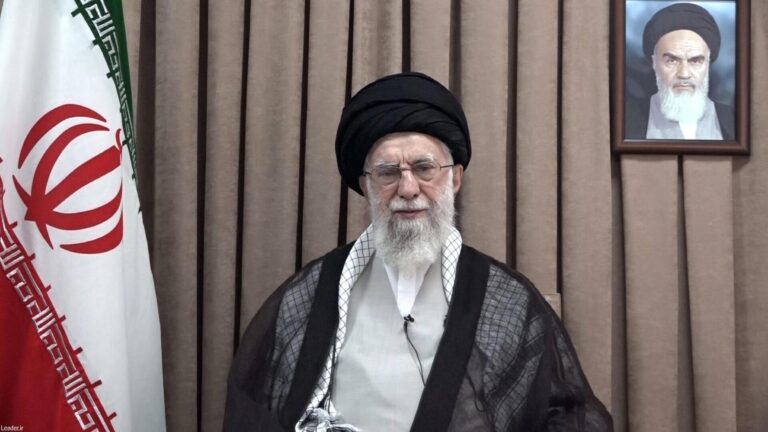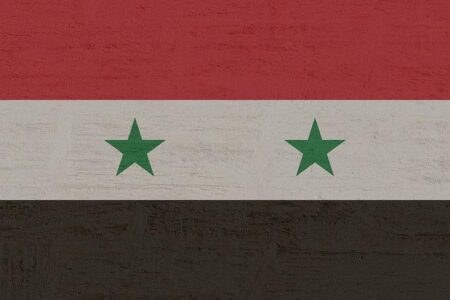Iran’s recent geopolitical maneuvers have underscored a growing realization: even as Moscow positions itself as a steadfast ally, the Kremlin’s support has clear boundaries. According to a new analysis by the Atlantic Council, Iran’s experience highlights the limits of Russian backing amid shifting regional dynamics and global pressures. This development marks a critical moment in Moscow’s relationships with its key partners, revealing tensions that could reshape alliances and strategic calculations in the Middle East and beyond.
Iran’s Strategic Calculations Challenged by Russia’s Limited Backing
Iran’s expectations for comprehensive support from Moscow have encountered significant hurdles, as Russia maintains a cautious approach amidst its own geopolitical constraints. While Tehran has counted on the Kremlin’s backing to bolster its regional ambitions and counterbalance Western pressures, the reality has been a more measured and selective assistance that prioritizes Russia’s interests above all. This recalibration disrupts Iran’s strategic calculations, forcing it to reassess its foreign policy tactics within a complex triad of alliances, rivalries, and economic sanctions.
- Military Cooperation: Limited transfer of advanced weaponry, prioritizing diplomatic leverage over outright military entanglement.
- Economic Support: Selective commercial ties affected by Moscow’s own economic challenges and Western sanctions.
- Diplomatic Backing: Moscow balances relations with multiple Middle Eastern actors, curbing full-throated support for Tehran.
| Aspect | Iran’s Expectation | Russia’s Actual Position |
|---|---|---|
| Military Aid | Advanced weapons & technology | Limited and conditional support |
| Economic Relations | Sanctions relief and trade expansion | Restricted, cautious engagement |
| Political Support | Firm diplomatic backing | Pragmatic, with diplomatic balancing |
Implications for Tehran Moscow Alliance Amid Geopolitical Shifts
Recent developments have underscored the increasingly complex dynamic between Tehran and Moscow, revealing significant limits to Russia’s willingness and capacity to fully back its Iranian ally amid shifting geopolitical pressures. While both capitals share interests in counterbalancing Western influence and promoting a multipolar world order, Moscow’s strategic calculus is being recalibrated by its own economic constraints, military engagements, and diplomatic priorities. Consequently, Tehran must now navigate a more cautious partnership, recognizing that Kremlin support-long assumed as a given-is conditioned by Russia’s broader regional ambitions and the tangible costs it incurs.
This recalibration is manifest in several critical ways:
- Limited Military Assistance: Moscow’s focus on the Ukraine conflict restricts the scope and speed of military aid to Iran.
- Selective Economic Collaboration: Sanctions and global economic volatility force Russia to prioritize its domestic economy over expansive bilateral projects.
- Diplomatic Ambiguity: Russia’s occasional alignment with Western concerns over Iran’s regional activities signals a pragmatic restraint.
| Aspect | Tehran Expectations | Moscow Reality |
|---|---|---|
| Military Support | Robust, timely arms deliveries | Restricted, delayed assistance |
| Economic Partnership | Expanding trade and investment | Constrained by sanctions and priorities |
| Strategic Backing | Unconditional political cover | Calculated, issue-based alignment |
Navigating New Realities Recommendations for Iran’s Foreign Policy Adaptation
As Iran deepens its ties with Moscow, recent developments reveal significant constraints in relying exclusively on Kremlin backing to counter international pressures. Tehran’s strategic calculus, once buoyed by the promise of robust Russian support, now faces the stark reality of Moscow’s calibrated engagement shaped by broader geopolitical interests. This dynamic requires Iran to proactively diversify its foreign policy toolkit, shifting toward a more multifaceted approach that balances pragmatism with ambition in a rapidly evolving global landscape.
Experts suggest that a successful realignment will involve bold diplomatic initiatives alongside recalibrated economic partnerships. Among the key recommendations are:
- Broadening Alliances: Exploring new partnerships beyond traditional allies to mitigate over-dependence on Moscow.
- Engagement with Regional Actors: Strengthening ties with neighboring countries to enhance regional stability and economic cooperation.
- Cautious Economic Integration: Balancing sanction circumvention tactics with efforts to attract legitimate foreign investment.
- Active Multilateralism: Leveraging platforms such as the UN and non-aligned forums to amplify diplomatic influence.
| Foreign Policy Objective | Recommended Approach |
|---|---|
| Reducing Russian Overreliance | Forge new bilateral ties in Asia and Africa |
| Economic Resilience | Enhance domestic production to counter sanctions |
Diplomatic Flex It looks like your message was cut off. Based on the content you provided about Iran’s foreign policy and its evolving relationship with Russia, how can I assist you further? Would you like me to help complete the table, summarize the text, create discussion questions, or assist with something else?
Future OutlookAs Iran’s relationship with Russia faces fresh challenges, its experience underscores the complexities and limitations inherent in aligning too closely with the Kremlin. While Moscow remains a significant geopolitical player, Tehran’s recent frustrations reveal that Russian support is neither unconditional nor limitless. This development not only reshapes the regional dynamics but also highlights the cautious calculations other nations must make when navigating alliances with an increasingly assertive yet constrained Russia. The evolving Iran-Russia relationship will continue to be a critical barometer for understanding the broader strategic balance in Eurasia. |




